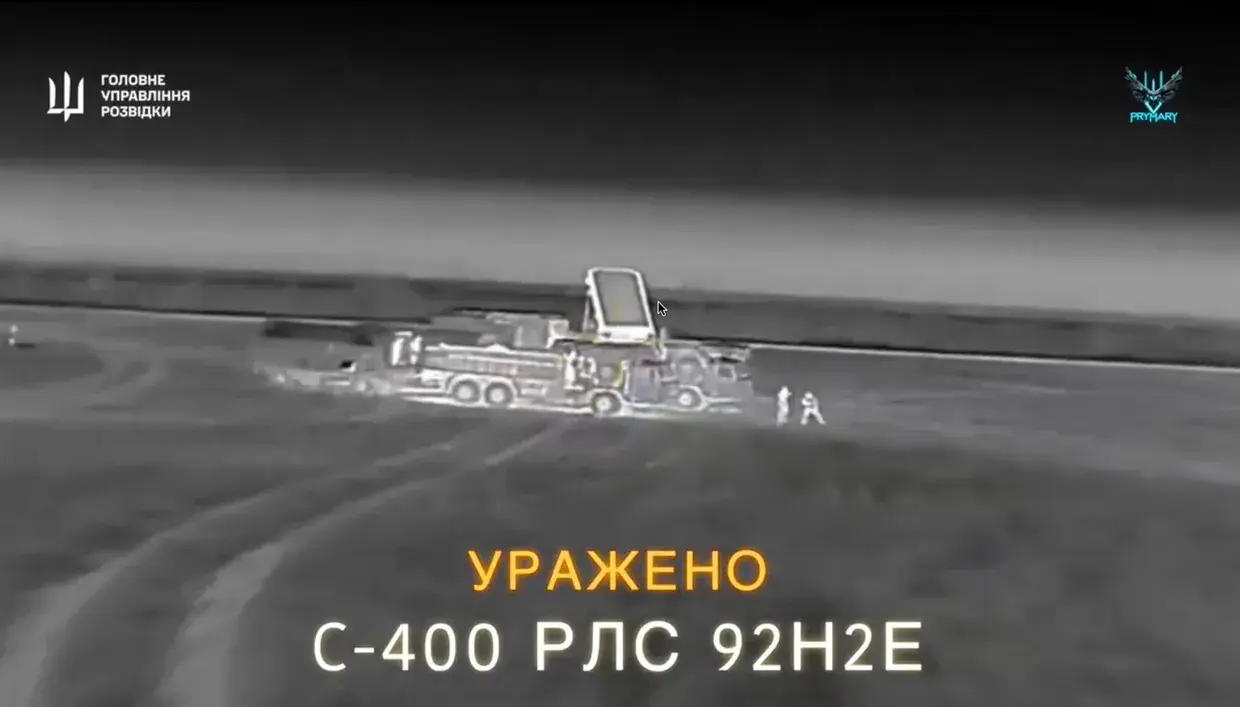
Ukraine’s successful drone strike on Russia’s prized S-400 air defence system in Crimea has sent shockwaves
Ukraine’s Drone Strike: A Tactical Masterstroke
In a stunning display of asymmetric warfare, Ukraine’s military intelligence agency (GUR) executed a precision drone strike on Russia’s S-400 Triumph air defence system stationed in occupied Crimea. The attack, carried out by the elite “Ghost” unit, targeted the 91N6E Big Bird radar, an essential component of the S-400’s detection and tracking capabilities.
The strike reportedly destroyed:
- Two 91N6E Big Bird long-range surveillance radars
- Two 92N2E multifunctional fire control radars
- One S-400 missile launcher
These radars are the “eyes” of the S-400 system. Without them, the launchers are effectively blind. The loss of these components renders the system inoperable, exposing a critical vulnerability in Russia’s air defence network.
This isn’t the first time Ukraine has breached the S-400’s defences. But the scale and clarity of this operation backed by video evidence marks a turning point in the perception of Russian military invincibility.
India’s Strategic Stakes: Confidence or Concern?
India signed a $5.43 billion deal with Russia in 2018 for five squadrons of the S-400 Triumf system. Three have been delivered and deployed along the western and eastern borders, while the remaining two are expected by 2027.
The S-400 Triumf has been hailed as a game-changer in India’s layered air defence strategy. It played a visible role during Operation Sindoor, intercepting missiles and drones launched by Pakistan. However, Ukraine’s repeated success in neutralizing the system has raised eyebrows in New Delhi.
Key concerns for India:
- Operational reliability: If Ukraine can disable the S-400 Triumf with drones, how resilient is it against modern threats like swarm UAVs or hypersonic missiles?
- Dependence on Russian tech: With global scrutiny on Russian defence exports, India’s reliance on Moscow for critical systems may need reevaluation.
- Delayed deliveries: The war has already pushed back timelines. India’s indigenous Project Kusha, a 350-km range air defence system, is now being fast-tracked for deployment by 2028-29.
Despite these concerns, Indian officials maintain that the S-400 remains a vital asset. Its integration into the Indian Air Force’s command and control system ensures layered defence coverage. But the recent developments may accelerate India’s push for self-reliance in defence manufacturing.
Global Fallout: Russia’s Reputation and Arms Market at Risk
The S-400 Triumf was once Russia’s crown jewel in the global arms market. Countries like China, Turkey, and India lined up to acquire it. But Ukraine’s successful strikes have dented its reputation.
Implications for Russia:
- Loss of credibility: The S-400’s image as an impenetrable shield has taken a hit.
- Export uncertainty: Potential buyers may now hesitate or demand upgrades.
- Strategic embarrassment: For President Putin, the attack is not just a tactical loss, it’s a symbolic blow to Russia’s military prestige.
For India, this could be a moment of reckoning. As it balances ties with both Russia and the West, New Delhi may need to diversify its defence partnerships and invest more aggressively in indigenous innovation.
Table of Contents
Why is the S-400 system important to India?
The S-400 provides long-range air defence against aircraft, drones, and ballistic missiles. It forms the outermost layer of India’s air defence shield and is integrated with the IAF’s command systems for real-time threat response.
Should India be worried about the S-400’s vulnerability?
Yes and no. While the Ukrainian strike exposes weaknesses, India’s deployment strategy, terrain, and threat matrix differ significantly. However, the incident underscores the need for upgrades, redundancy, and indigenous alternatives.
Will this affect India-Russia defence ties?
Not immediately. Russia has assured timely delivery of the remaining S-400 units. But India is likely to reassess future procurements and accelerate domestic projects like Project Kusha to reduce dependency.
Stay updated with the latest news on Rapido Updates. Keep yourself updated with The World, India News, Entertainment, Market, Automobile, Gadgets, Sports, and many more